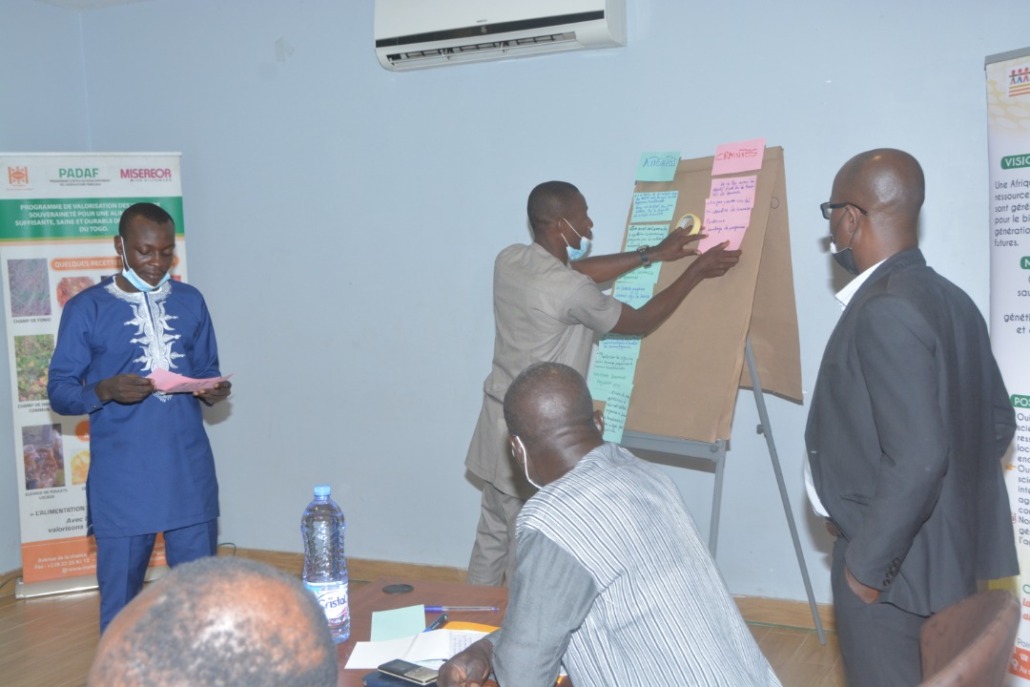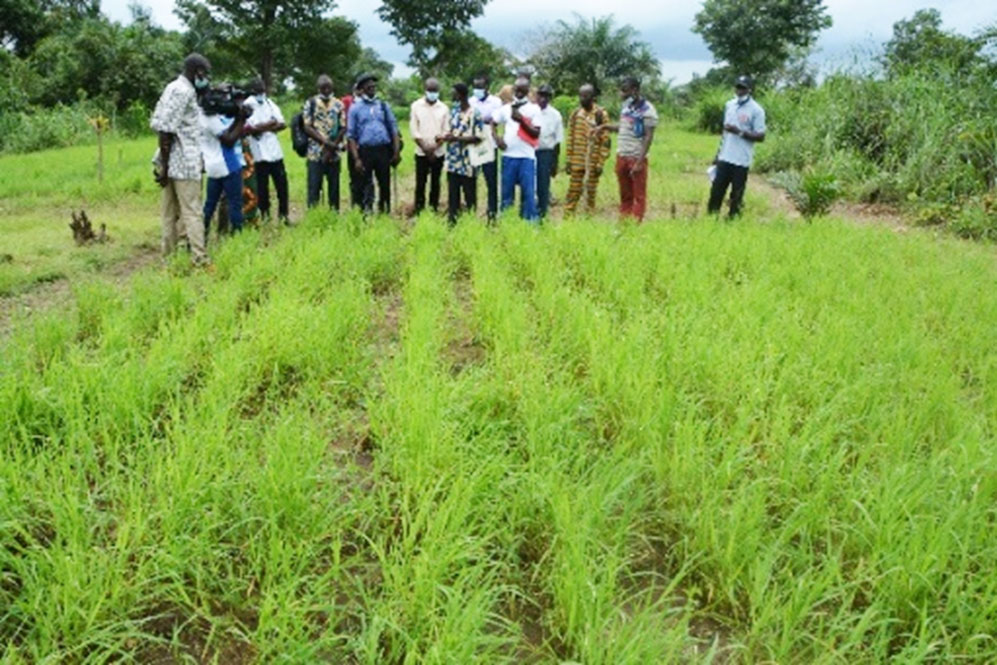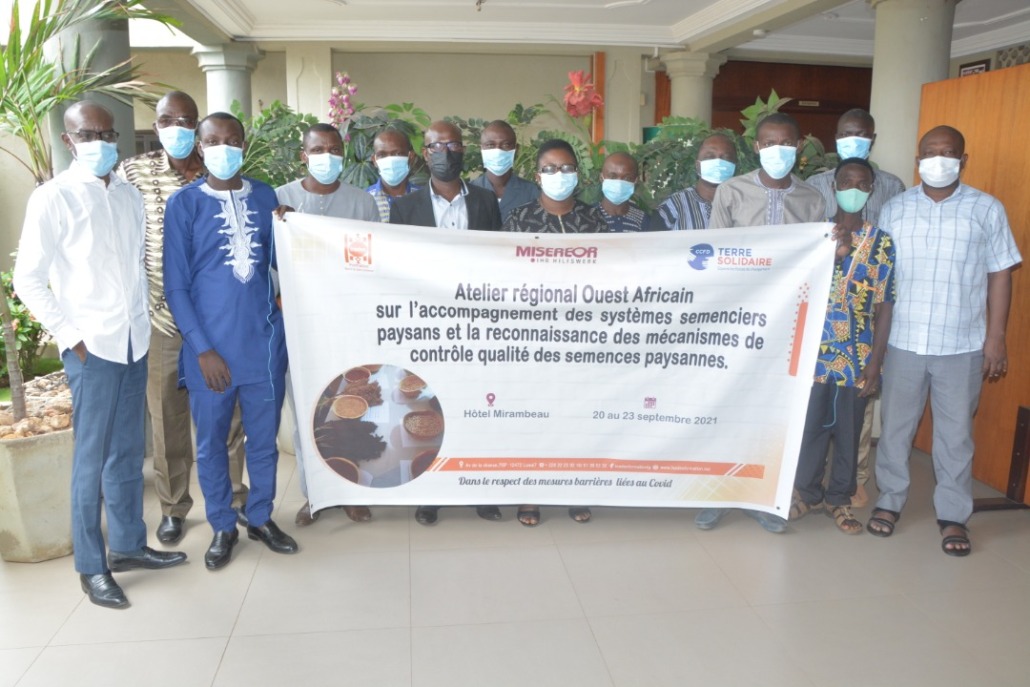Within the framework of the Sovereignty Food Valuation Project phase 1 (2017-2019) and phase 2 (2020-2022), the dynamics around Farmer Seed Entrepreneurship (FSE) and the Farmer Endogenous Seed Quality Control System (FEQCS) have been strengthened in the Inades-Training network, This has resulted in the gradual availability of quality seeds produced by farmers in Burkina Faso, Togo, Côte d’Ivoire, Cameroon, Chad, Congo and Burundi, according to data provided by the National Offices of these countries by the end of 2020.
In order to consolidate the initiatives undertaken and consider their scaling up, they have been documented and shared with other seed actors and partners in the framework of a West Africa Regional Workshop, organized in Lome, Togo, from September 20 to 23, 2021.

This workshop brought together teams from the national offices (NO) of Togo, Burkina Faso and Cote d’Ivoire. Other actors involved in seed issues also took part in this workshop, namely the National Seed Directorate of the Ministry in charge of agriculture in Togo, the Coalition for the Protection of African Genetic Heritage (COPAGEN), the Union of NAAM groups in Burkina Faso and seed producers in Togo.
Each of the invited NO and actors shared their experiences on the valorization of farmers’ seeds. Farmers’ seeds include traditional seeds, improved seeds adopted and multiplied by farmers, and local seeds.
A field visit was organized with all participants to learn about farmers’ initiatives on seeds in Togo in the village of Yao Kopé in the Plateau region. This allowed to visit CILAC’s experimental plots, seed fields and to exchange with the members of the village cooperative. These exchanges focused on the possibilities of financing seed production activities, the distribution of farmer seeds, the processing of foodstuffs and other local products, etc.

A video report on the whole workshop and on the visit of the seed initiatives in the field, will allow a wide dissemination of the work undertaken on the valorization of farmers’ seeds by Inades-Formation, through various channels (websites, networks, etc.).
Let us recall that the objective of the FSE is to: (i) bring quality seeds closer to small-scale agricultural producers; (ii) make the prices of quality seeds accessible to the purchasing power of small-scale producers; and (iii) make seed production an income-generating activity for rural populations. As for the DCEQS, it is to have an instrument to guarantee the quality of farmers’ seeds produced.
This regional workshop was a good opportunity for sharing experiences between the three West African National Offices and other seed actors from these countries. The learnings allowed to enrich and consolidate the operational plans of the FSE and DCEQS of the National Offices for more efficiency in the support of seed groups and for a scaling up of these initiatives. Several recommendations and points of attention have been formulated and will be the subject of follow-up of the initiatives undertaken in each National Office in the framework of a follow-up plan.










